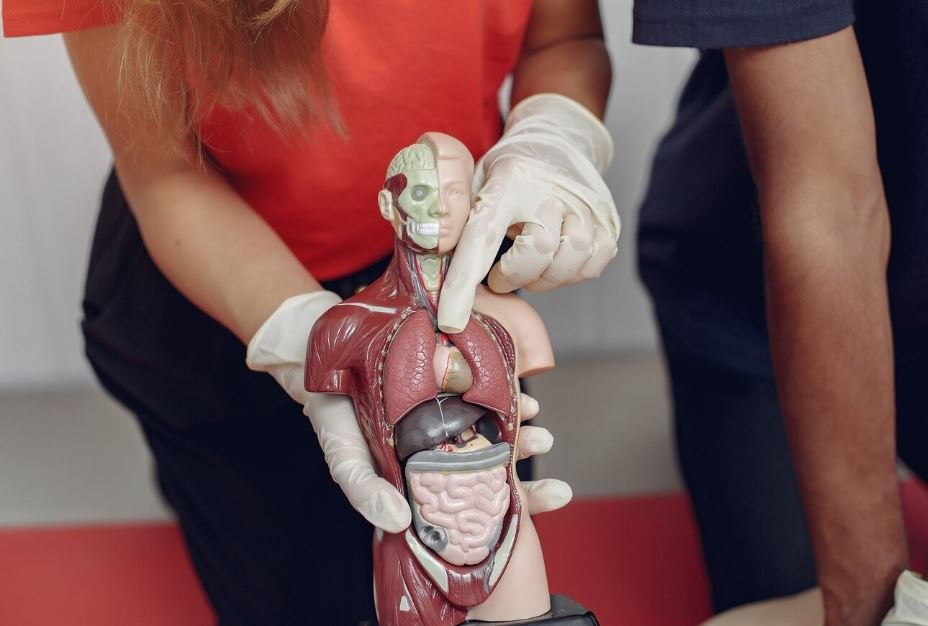
For many people, having a gastrectomy—the partial or complete removal of the stomach—marks a significant turning point in their medical journey. Gastrectomy provides hope where other treatments fail, whether it is a life-saving procedure for cancer patients, a remedy for people suffering from extreme obesity, or a solution for other severe stomach problems. The procedure can have life-altering effects, but it also involves extensive recovery time, patient education, and careful planning.
The particular medical condition has a significant influence on the decision to have a gastrectomy. When other treatment options have failed, gastrectomy provides a path forward for patients with peptic ulcers, severe obesity, or gastric cancer. The type of gastrectomy depends on how severe the condition is; a partial gastrectomy removes a portion of the stomach, whereas a total gastrectomy removes the entire organ.
Gastrectomy Surgery Overview Table (for WordPress insertion)
| Type of Gastrectomy | Description | Used For |
|---|---|---|
| Partial Gastrectomy | Removal of part of the stomach to treat localized conditions. | Stomach cancer, ulcers, benign tumors. |
| Total Gastrectomy | Complete removal of the stomach. | Stomach cancer, hereditary cancer risks, severe ulcers. |
| Oesophagogastrectomy | Removal of the stomach and part of the esophagus. | Advanced cancer affecting both the stomach and esophagus. |
Recognizing the Different Types of Gastrectomy
A partial stomach removal
A section of the stomach is removed during this procedure. It is frequently used to treat localized illnesses like gastritis, ulcers, and tumors. The amount of stomach removed determines the specific subtype; hemigastrectomy, which removes half of the stomach, and subtotal gastrectomy, which removes about 80% of the stomach, are two examples.
Complete Gastrectomy
A complete gastrectomy is required in more severe cases, particularly for stomach cancer. The entire stomach is removed during this procedure, and the small intestine is joined directly to the remaining esophagus. Even though this changes the digestive process, people can still live normal lives, but they will need to change the way they eat and live.
Gastrointestinal resection
The stomach and a portion of the esophagus are removed during this procedure. Usually, it is saved for advanced cancers or disorders that impact the esophagus and stomach.
The Causes of Gastrectomy
Although a gastrectomy is frequently considered a last resort, it can actually save lives. The most frequent cause of gastrectomy is gastric cancer, for which removing all or a portion of the stomach can increase survival rates and stop the cancer from spreading. Furthermore, gastrectomy is becoming more and more common in bariatric surgery for patients with extreme obesity who have not improved with traditional therapies. Gastrectomy may even be used in certain situations to treat chronic gastritis or peptic ulcers that don’t improve with medicine.
Furthermore, people who have a genetic predisposition to stomach cancer, such as those who have the CDH1 gene mutation, which significantly raises the risk of hereditary diffuse gastric cancer, may benefit from gastrectomy as a preventive measure.
How Does a Gastrectomy Happen?
Usually, general anesthesia is used to perform the actual surgery. To remove the damaged stomach portion, the surgeon makes an incision in the abdomen. Laparoscopic surgery, which uses a camera to guide the procedure and involves smaller incisions, is used in some situations. This method enables less scarring and a quicker recovery.
The remainder of the digestive tract is connected after the stomach is removed. The esophagus and small intestine are joined directly in a total gastrectomy. To guarantee that the digestive system can recover from surgery, this calls for meticulous preparation and accuracy.
The Aftercare and Recovery Process
Recovery from a gastricectomy can take a long time, frequently involving a two-week hospital stay. Before moving on to liquids, soft foods, and ultimately regular meals, patients will initially be fed via an IV or feeding tube. Patients must follow stringent dietary recommendations due to the substantial alterations to the digestive system in order to prevent complications like malnutrition or dumping syndrome.
Patients must avoid large portions and eat smaller, more frequent meals for the first few months after surgery. Frequent follow-up visits are essential for managing any complications, keeping an eye on the healing process, and modifying diet plans as necessary.
Possible Difficulties and Hazards
Gastrectomy has risks, just like any major surgery. Common worries include blood clots, infections, and anesthesia-related allergic reactions. Furthermore, there are gastrectomy-specific side effects like:
- Dumping Syndrome: This condition is brought on by food passing through the small intestine too quickly, which results in bloating, diarrhea, and nausea.
- Bile reflux: When bile flows backward, it can irritate the stomach and esophagus, causing pain and possibly harm.
- Malnutrition: Patients who have smaller stomachs may find it difficult to absorb enough nutrients, which can result in iron and vitamin B12 deficiencies.
- Anastomotic Leaks: Infections caused by leaks in the surgical connections between organs necessitate prompt medical attention.
Notwithstanding these possible dangers, gastrectomy has far more advantages than disadvantages when it comes to treating serious illnesses like cancer. Furthermore, these risks have been greatly decreased by improvements in surgical techniques.
Psychological and Emotional Effects
Gastrectomy is not only a medical operation; patients may experience psychological effects as well. For people having cancer surgery, losing the stomach and the dietary adjustments that follow can be extremely stressful. During this time of transition, family, counseling, and medical support can be extremely helpful.
The emotional journey of adopting a new lifestyle, weight loss, and changes in body image can all have a substantial psychological impact on patients having bariatric gastrectomy. Therapy and support groups can be very beneficial for handling these changes.
Gastrectomy as an Obesity Treatment
An increasingly common treatment for extreme obesity is bariatric gastrectomy, especially the gastric sleeve. In addition to encouraging substantial weight loss, the procedure lowers the risk of diabetes, high blood pressure, and other obesity-related illnesses, improving the patients’ general health. To preserve long-term health benefits, patients must adhere to a rigorous post-surgery regimen of appropriate nutrition, exercise, and emotional support.
Future Developments and Innovations in Gastrectomy Surgery
These techniques shorten recovery periods, lower risks, and improve overall surgical results. Additionally, genetic research and personalized medicine are assisting medical professionals in customizing treatments for each patient, increasing accuracy and lowering complications.
Advances in early detection and more focused treatments for gastric cancer are anticipated to lessen the need for extreme measures like gastrectomy. The landscape of stomach-related diseases may change dramatically as research advances and new strategies for personalized therapies and preventative care emerge.
After a Gastrectomy, Life
Patients can lead healthy, satisfying lives even though having a gastrectomy necessitates major lifestyle changes. Patients can successfully navigate this life-changing procedure and restore their health and vitality with the help of a balanced diet, frequent checkups with the doctor, emotional support, and careful planning.




